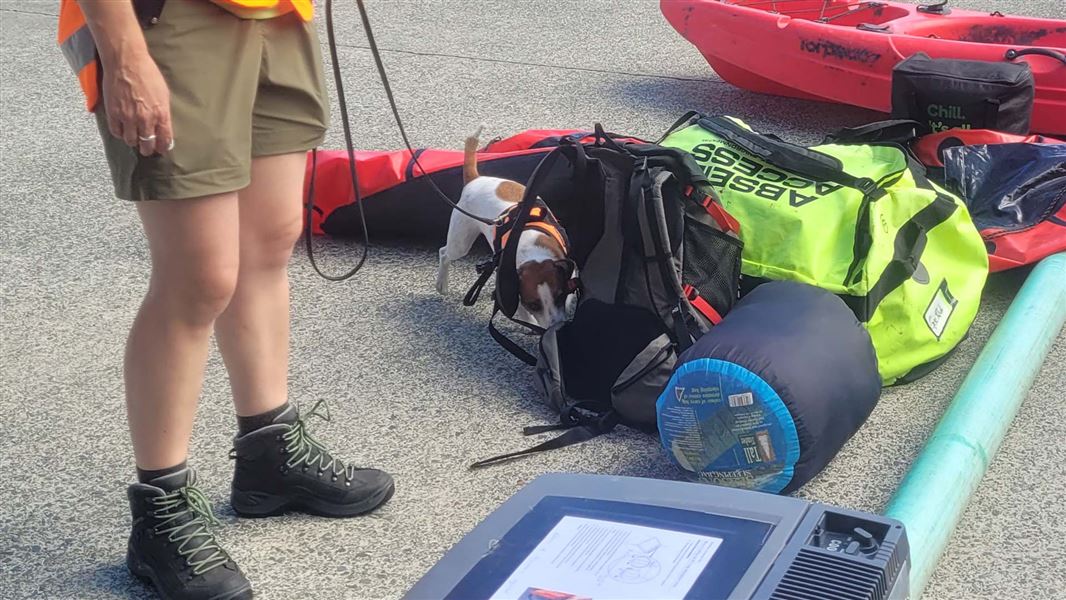Date: 15 April 2024
Three DOC handlers working with detection dogs for plague skinks and rodents, and three Auckland Council handlers with detection dogs for kauri disease, ants and rodents, have been inspecting a large quantity of gear, vehicles, sites and people headed for the islands throughout April.
This evening, DOC Ranger Colleen Birch with rodent detection dog Pru will be at Half Moon Bay inspecting trucks, machines and building equipment bound for Motutapu for construction work.
“I’ll be visually checking for potential pests like Argentine ants, plague skinks, seeds and the items they can hide in like clumps of dirt and plant material,” says Colleen.
“Then it will be Pru’s turn. She’ll give everything a good sniff over to ensure there aren’t any rodents hiding away where I can’t see. Once Pru and I are happy everything is pest free, the vehicles will be loaded onto the barge,” she adds.
The April biosecurity site inspections have included the surrounds of a helicopter hanger, a construction yard, the Auckland base of the Dual multi-sport event, and the Half Moon Bay ferry terminal – intercepting plague skinks, mice and an ants nest underneath a vehicle so far.
“Days of work went into making sure the Dual event was a success for people and for wildlife by ensuring Motutapu and Rangitoto remain pest-free. On top of inspecting the equipment and vehicles, Council and DOC handlers worked closely with the organisers and we inspected more than 2000 competitors, volunteers and vendors – especially their bags and camping gear,” says Hannah Irwin, DOC Pest Detection Dog Handler.
Auckland Council’s Kauri Detection Dog Handler Kayla Rench focused her dog Marty’s nose on mountain bikes looking for potential particles of soil infected with kauri dieback.
“Removing soil that could be infected was a priority for me, so I was quite happy to roll up my sleeves and get my hands dirty and help scrub any bikes that needed attention.”
“DOC and Auckland Council put a lot of resource into biosecurity for pest-free Hauraki Gulf islands. This includes mainland inspections with conservation dog teams, working with commercial boat owners and marinas to obtain Pest Free Warrants and to action pest control, and advocacy with the public,” says Kat Lane, Hauraki Gulf Inner Islands Operations Manager, DOC.
“The payoff comes with having these incredible sanctuaries that can help us bolster nationwide populations of species like wētāpunga/giant wētā, tuatara and kiwi. Motutapu, for example, is a valuable island for nationwide conservation efforts for North Island Brown kiwi and takahē,” says Kat.
Background information
DOC’s Conservation Dogs Programme mentors, certifies and supports dog handler teams to detect New Zealand’s protected species or unwanted pests.
Handlers can be DOC staff, staff from other organisations and individuals. Conservation Dogs Programme dog-handlers are skilled and experienced in wildlife management and pest control.
Air New Zealand is the national partner for the Conservation Dogs Programme. Their investment helps us run a world-class programme offering mentoring, training and certification to dog handler-teams around New Zealand.
Contact
For media enquiries contact:
Email: media@doc.govt.nz
